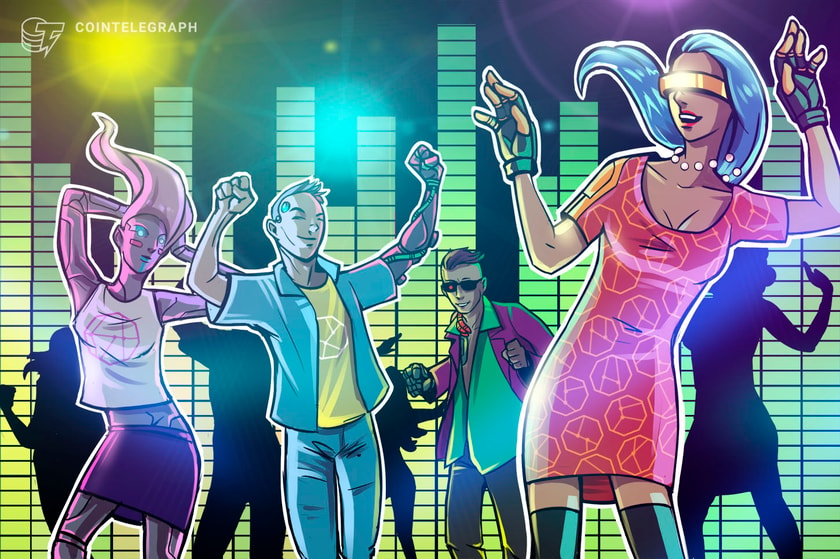The rise of AI and the impact it could have on the music industry

The impact of AI technology on the music industry is undeniable, and the future implications remain uncertain.
Artificial intelligence (AI) has exploded into popular culture, and the music industry is not immune to its impact. From songwriting and music production to marketing and distribution, AI is revolutionizing all aspects of this beloved art form.
The way music is created, consumed and monetized feels as though it is on the cusp of a major change. Will AI find a place in the music industry and impact how composers work and create new music?
With artificial intelligence gaining ground, what will it do to the genuine emotion that musical releases normally emote? Could those real emotions be replicated by something like artificial intelligence?
The advantages of AI in music
Generative AI refers to a type of AI that can generate content, such as images, videos and music. It uses machine learning algorithms to learn patterns and structures from existing data and then generates new content based on those patterns. In the music industry, this technology can be used to create original music compositions for any genre.
One of the main advantages AI has when creating music is its ability to analyze vast amounts of data in order to identify patterns and predict trends. This can help music producers and marketers release music that is more likely to resonate with their target audience.
“I expect new AI artists to rise, mixing genres in a new way, reinventing themselves in ways more drastic than any human artist could, and monetize off personalized music customization so fans can be personally contributing to their art,” predicts Alex Masmej, CEO of Showtime.xyz.
Recent: Here’s how Ethereum’s ZK-rollups can become interoperable
In essence, this system is an evolved version of ones already in place by platforms like Spotify that use machine learning algorithms to analyze a user’s listening habits in order to provide them with personalized playlists that match their music preferences.
Another advantage of AI in music is its ability to create new and original music compositions quickly and at a cost-effective price. This is particularly useful for independent artists who may not have the resources to hire a team to create their music. AI-powered music generators such as AIVA, Amper Music and Jukedeck can make compositions in various styles, which artists can use as the basis for their own music.
Adding to the cost-effective nature of this emerging technology, AI can also help to improve music production by automating repetitive tasks and freeing up artists to focus on more creative aspects of the music-making process. For example, AI-powered applications are available to analyze and correct both pitch and timing errors in vocal recordings. This can save a lot of time and effort compared to manual editing.
Jeff Nicholas, executive creative director of AI music company Authentic Artists, told Cointelegraph that “the ability to more quickly deal with some of the technical aspects of music making will accelerate the creation and release processes.”
“And the ability to use AI as a collaborator that can help spark new ideas, take seeds of their ideas in new directions and so much more is going to be nothing short of a renaissance for them,” he added.
The challenges of AI in music
Despite its many advantages, AI in music also presents several challenges. One of the main issues is the ethical and legal implications of using artificially created music. Who owns a copyright to music produced by AI? Should AI-generated music be considered original, or is it just a derivative work based on existing music? Given the fact that machines learn from already existing content, does that make it unoriginal? Don’t humans do the same thing?
The legal and philosophical questions are real. In the opinion of many, it comes down to the people using it and the responsibility they take for the originality of their work.
“This technology has significant negative impacts in addition to the useful and exciting ones. It’s going to be used by bad actors and unethical players to mimic artists for one,” Nicholas warned.
AI-generated songs are getting scary good.
The music industry is NOT prepared for this.
Here’s 9 songs created 100% with AI:
1. Michael Jackson singing “I Feel It Coming” by the Weeknd pic.twitter.com/XiaHDSrXOf
— The AI Solopreneur (@aisolopreneur) April 18, 2023
“That’s going to lead to a lot of legal cases and regulatory pressure. It’s also going to put a lot of those in technical roles around sound engineering, or doing curation at the music platforms, out of work. But with all new technology comes this transition moment where its arrival displaces the status quo and radically changes how we do things moving forward,” he said.
The potential impact of AI on employment for musicians and producers is a point that shouldn’t be overlooked. As AI-powered music generators become more advanced, they may be able to permanently replace human musicians and producers in some areas of the industry, particularly in the production of background music for film and television. This could lead to job losses and a decline in the musical production quality as AI-generated music, in its current incarnation, is perceived as less authentic than music created by human musicians.
Recent: Blockchain and crypto leaders converged at DAO Tokyo as Japan increases adoption
The final note here is that AI in the music industry has both advantages and challenges. While this advanced technology has the potential to revolutionize the music industry, it presents ethical and legal implications. It is crucial to address these challenges and for individuals in the industry to use this technology responsibly to create music that is both innovative and authentic.
Ultimately, AI in the music industry may lead to a musical revolution, but humans might end up being the casualties.



